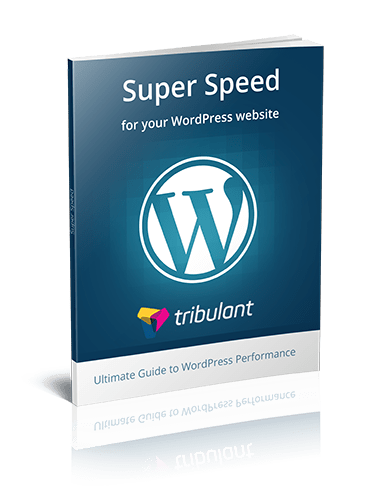
16 Smart WordPress Tips for Effective Blogging

Let’s have a look at 16 tips for effective blogging!

There are many blogging platforms out there, but WordPress seems to be the most professional-looking and user-friendly. WordPress is also connected to WordPress.org, a site that assists users in improving their blogs through coding, HTML, and other platform-related features.
Why use WordPress?
Many professional companies use WordPress as their platform, with the help of hosting sites with more servers, so that they can accommodate a huge number of viewers and followers. WordPress is dealing with many competitors, but they retain loyal subscribers and continue to grow in users because of their easy to use interface and their various application options.
Still, using any blog platform is not as easy as it looks. Before you can maximize the use of any platform, especially WordPress, you need to know how to use it wisely.
Tips for Effective Blogging
Here are 16 tips for effective blogging:
1. Choose a niche
Before you get started, choose a niche for your blog. Unless you are planning on becoming a free-for-all blog, you need to find a specific audience and design your blog and plan your content according to their needs. You can be a personal blogger, a business blogger, a gaming blogger, and much more. You can even be a combination of all of these.
2. Select the best plan
WordPress offers domain plans that you can utilize to improve your blog. The free plan allows you to use pre-designed templates, but the most you can do is edit and publish your posts. The downside is that the designs have limited choices. Their next plan allows you to buy a domain name so that the “.wordpress.com” is removed from the URL. The rest of their plans allow you to control more of your site and add features that you would not normally be allowed to with their free plan.
3. Write an original and catchy title
When writing a blog on WordPress, it is best to write a unique title that will catch readers’ attention. It should be 70 characters or less so that the whole title will show up on search engines and preview links on social media as well. Here’s a tip on how you can think of a good title: Search for your topic online and write a title that is not on the list of the first five pages of the search engine results.
4. Connect to social media
Always remember that blogs are only as effective as their promotional strategies. As much as you would like to place first on Google, that will not happen for a very long time unless you do your part. Use social media widgets that allow you to share, tweet, and post on Pinterest. At the same time, you must promote your blog on social media as well.
5. Practice image optimization
Image optimization is the practice of using meta tags within the images. When you post an image on WordPress, make sure that you use keywords to describe it and write down tags so that it can be accessed through spider searches as well.
6. Write journalistic content
Because of the new rules for search engines, it is not enough to write down random and misunderstood keywords on your post. You must write content that is error and plagiarism-free. If you are not very good at producing this type of content, you can always hire a writing service.
7. Edit, proofread and edit some more
To follow up on journalistic content, you must always re-read your content. Put yourself in your target market’s shoes and see if the article is as good as you think or if it is exactly what they want to read about. If not, edit it, revise, and edit it again. Perfection is key, but you can always rely on your best work in the end.
8. Consider graphics usage
This depends on what type of blog you have. Images are key to your website’s success because it has to be relevant and related to the type of content your using. Should your image be fun and light? Or should it be professional and straightforward? This also applies to infographics, if you choose to use them.
9. Network with other bloggers
WordPress connects its bloggers through its dashboard. Find the ones that can help you maximize your content by offering to write guest posts in return for a byline and mini-bio. Not only will this help give your blog traction, it will also allow you to collect connections that you can turn to in the future. Remember, blogging is all about giving and take.
10. Design, buy or create your own theme
WordPress offers a collection of ready-to-use and free-to-use themes. However, if you want a great WordPress blog, you should look into getting a better design. You can hire a web designer, use apps like Squarespace, or learn how to design a website on your own.
11. Use SEO applications on the site
WordPress premium plans have options to optimize your page using SEO. Just apply the necessary tags and WordPress will do the rest for you. To maximize this feature, use specific tags instead of general ones so that you can reach a more specific audience. General tags will only leave you lost in the crowd.
12. Link back to sources
It is definitely the polite thing to do and can open doors for these sources to look back at your blog. Google likes web pages that have links and is more likely to read it during its spider search. You can also ask other bloggers to link back to your page whenever you write guest posts for them.
13. Attribute properly
When you use content that is not yours – such as images, videos, and quotes – makes sure that you credit the original owner or author. This prevents any issues like banning your blog and even lawsuits from happening.
14. Promote unpopular posts
Since WordPress has an analytics tool, you can see which blog posts are gaining popularity and which ones aren’t. If you feel that the unpopular blogs are worth the read, market them on social media sites. LinkedIn and Tumblr are also untapped resources for blog marketing.
15. Use widgets
WordPress and its premium plans offer thousands of widgets that you can use for your site. Choose the ones that can entertain your readers or the ones that they can use for productivity and efficiency.
16. Register with Google, Bing or other search engines
Go to Google’s SEO guide page and follow the instructions on how you can register your blog. This way they will know that you exist and that their search engine can easily find your blog. Some blogs succeed without this, but your goal is to maximize your WordPress use. Luckily, Google has instructions for WordPress as well.
It might be tempting to just forego using WordPress and let a developer do the job, but that would be time-consuming and costly. Not only do you have to discuss the plans thoroughly, you also have to pay a hefty price for something that you can do on your own. With that being said, try using these tips first and see if your blog becomes one of the most popular ones on the internet.
Malia Keirsey is a professional writer at Writersquad.co.uk and guest contributor with 4-year experience. She knows everything about web design and WordPress trends. Her successful projects and huge experience can help customers to build a perfect online platform.
WordPress Plugins
Start selling products, sending newsletters, publishing ads, and more through your own WordPress website using our premium WordPress plugins.



No comments yet